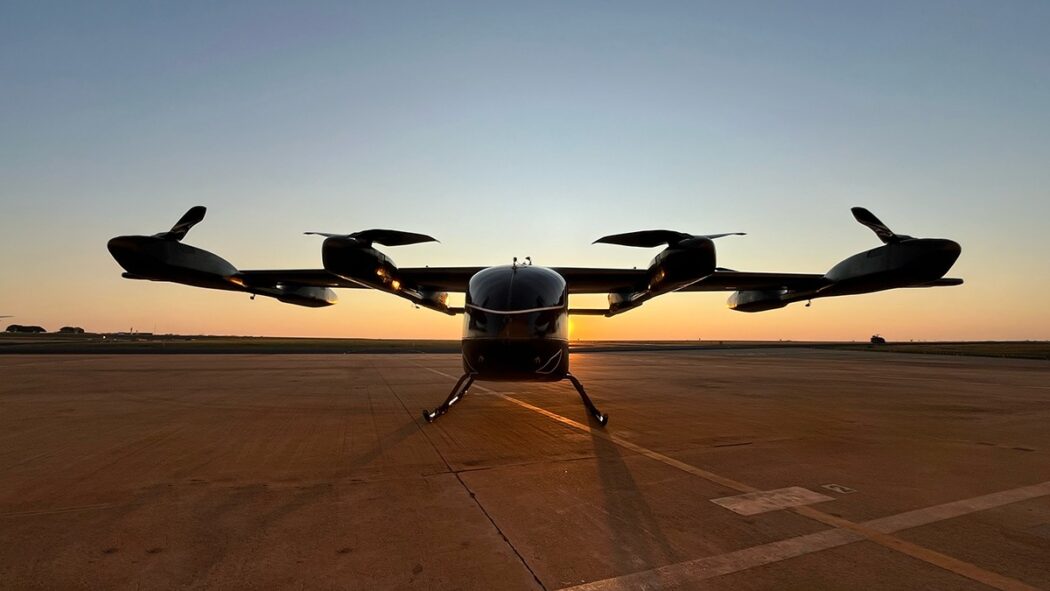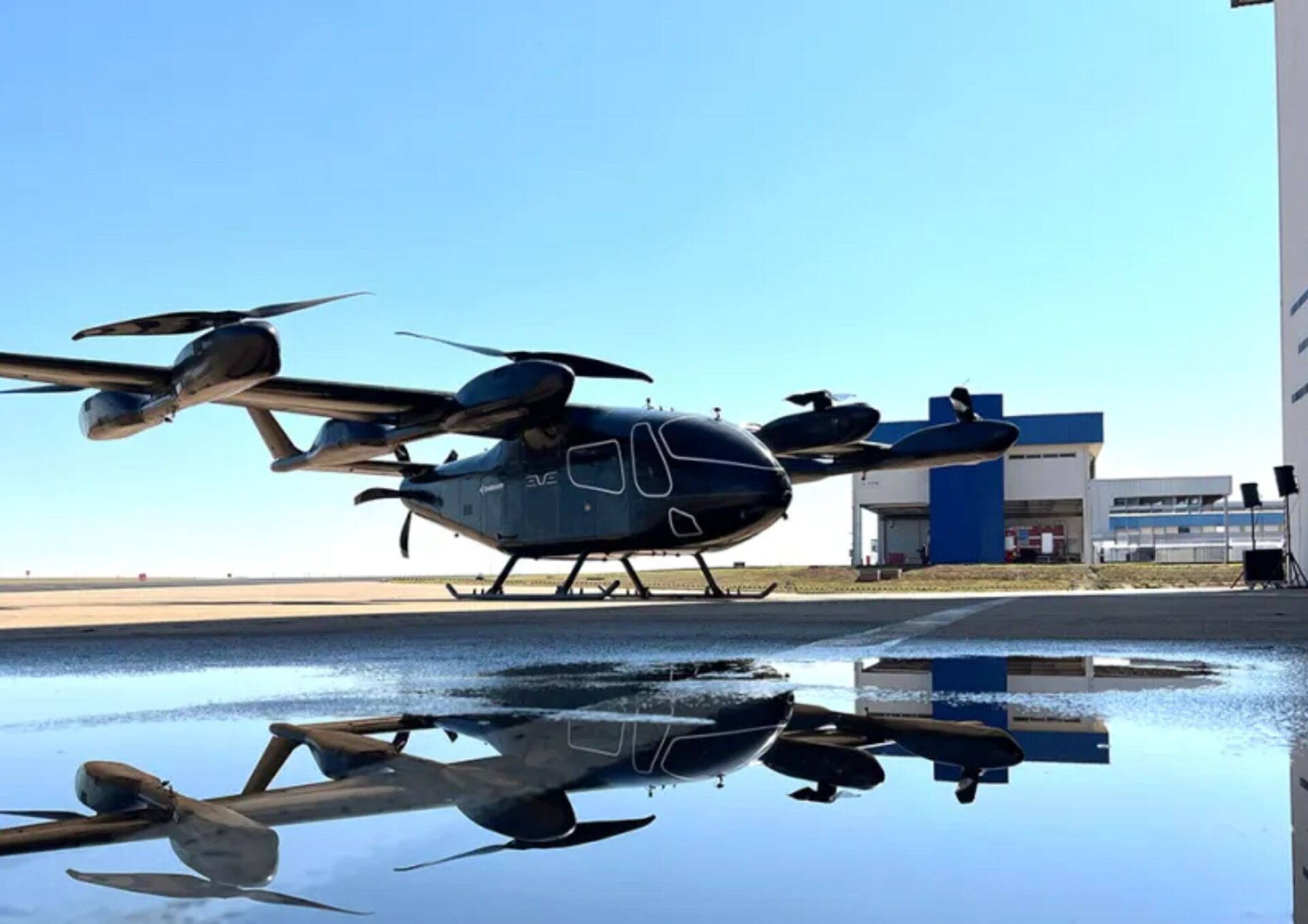Eve Air Mobility has officially launched its entry into the burgeoning air taxi market, making significant strides toward revolutionizing urban transportation. The Brazilian startup, a subsidiary of the renowned aerospace company Embraer, recently unveiled the full-scale prototype of its innovative electric vertical takeoff and landing (eVTOL) aircraft at the prestigious 45th Farnborough Airshow held in the United Kingdom.
The prototype represents a major technological advancement in the realm of air travel. Powered by electricity, the aircraft boasts two electric motors, eight dedicated propellers designed for vertical flight, and fixed wings to enhance its cruising capabilities. For the initial testing phases, this prototype will not accommodate passengers or a pilot; instead, it will be flown remotely, allowing for a thorough evaluation of its functionality and performance. Once finalized, the eVTOL is projected to transport four passengers along with a pilot, with an anticipated operational range of 60 miles (approximately 100 kilometers). This range positions the aircraft as an ideal solution for urban commuting, although Eve has yet to disclose specifics regarding its expected speeds or flight durations.

“Our global team of engineers has shown exceptional dedication and expertise to successfully assemble our first full-scale eVTOL prototype,” stated Johann Bordais, CEO of Eve Air Mobility. “This is a significant milestone that underscores our commitment to safety, accessibility, and innovation.” Bordais’s remarks highlight the extensive effort put forth by the engineering team and reflect the ambitious vision of the company.
Alongside the unveiling of the prototype, Eve Air Mobility announced the selection of all primary suppliers for the production of its aircraft. Notably, Diehl Aviation will be responsible for designing and manufacturing the aircraft’s interior, while ASE will supply the essential power distribution system. In a further boost to its operations, Eve disclosed that it has secured an additional $94 million in funding from various investors. This financial support is crucial, enabling the startup to advance the eVTOL development process and facilitate the certification stages ahead.
Eve plans to initiate flight tests of the prototype by late 2023 or early 2025. Following these initial flights, the company will engage in a series of extensive testing campaigns aimed at assessing safety and overall performance. “As we now turn our attention toward the preparation of a rigorous testing campaign, we are not just creating an aircraft; we’re building a comprehensive ecosystem of solutions that will shape the future of the Advanced Air Mobility industry,” Bordais elaborated, emphasizing the broader vision beyond just the aircraft itself.
Looking to the future, Eve aims to have five conforming prototypes ready for testing by next year. Additionally, the company has set its sights on developing a pre-series eVTOL by 2026, which will assist in navigating the certification process. Eve applied for certification from Brazil’s civil aviation authority in 2022 and anticipates receiving the necessary approvals to commence flight operations by 2026.
Eve Air Mobility is among a growing number of startups focused on creating emission-free air taxi services, a sector that is gaining significant traction in the face of intense competition. Despite the crowded marketplace, Eve has managed to secure interest from several clients, amassing nearly 3,000 potential orders ahead of production. Notable companies such as United Airlines, Global Crossing, and Azorra are among the interested parties looking to collaborate with Eve on this innovative transportation solution.

To meet the demand for its eVTOLs, Eve is establishing its first production facility in Taubaté, a city located in São Paulo, Brazil. This facility will initially be equipped to produce up to 480 aircraft per year, with the potential for expansion as demand and capital investment grow. This strategic move underscores Eve’s commitment to scaling its operations and fulfilling the needs of its clientele as the air mobility sector continues to evolve.
In summary, Eve Air Mobility’s entry into the air taxi race signifies an exciting development in the realm of urban transportation. With its ambitious plans, advanced technology, and strong financial backing, the company is poised to make a lasting impact in the Advanced Air Mobility industry. As they progress through the critical stages of prototype testing and certification, Eve’s innovative approach could reshape how people navigate urban landscapes, making air travel a more accessible and sustainable option for commuters.
The journey ahead promises to be filled with challenges and opportunities, and as Eve Air Mobility works toward bringing its eVTOL aircraft to market, it will undoubtedly play a pivotal role in shaping the future of urban air mobility. The company’s focus on safety, innovation, and creating a robust ecosystem around air transportation indicates a forward-thinking approach that could set the standard for others in the industry. As the countdown to the first test flights begins, the anticipation surrounding Eve’s eVTOL and its potential to revolutionize urban commuting is palpable.



